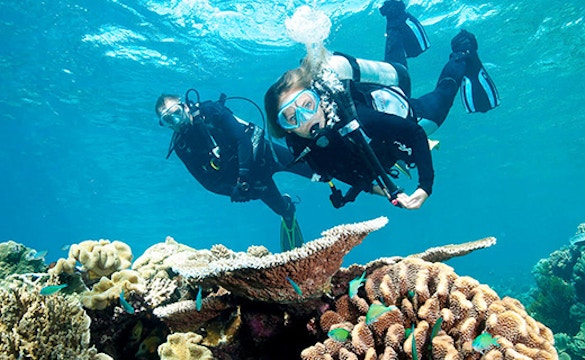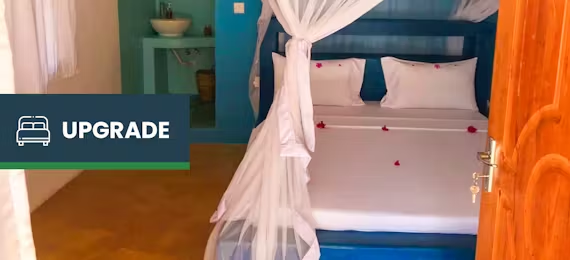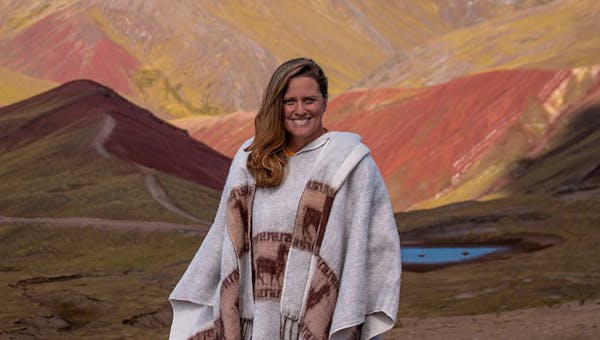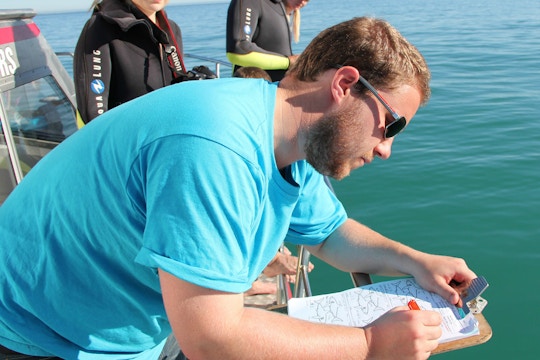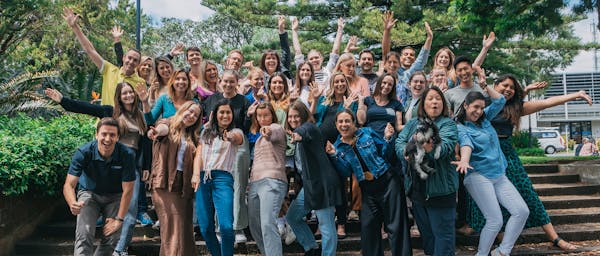Accommodation and WiFi
Volunteers on the Coastal and Marine Conservation project stay in semi-permanent fully furnished tents in a camp located just a 3 minute walk from the beach. You can expect to share with 1 to 3 other volunteers. When possible tents are separated by gender, however cannot always guarantee this separation due to varying occupancies and booking situations.
Bedding is provided, however you will need to bring your own towel and biodegradable toiletries. Biodegradable shower gel is provided in the shower blocks, as the greywater is used for watering the garden. Please note, because of this volunteers should not bring shampoos/shower gels that are not biodegradable. The showers are solar-heated and volunteers need to be prepared for times where there may be no electricity as the supply can sometimes be disrupted on the island.
The camp has cooks, housekeepers, maintenance staff and watchmen. The program coordinators and support team are also available on a daily basis during the week for support and via phone over the weekend.
If you would like to keep connected during your stay, free WiFi is provided and volunteers will be able to connect in most areas of the camp. Volunteers can also bring an unlocked mobile phone and the local team will provide you with a local SIM card at your orientation and assist you to set it up.
If you would like to arrive a day earlier than your recommended arrival date, or wish to spend a few extra nights after finishing your program, we can arrange extra nights of accommodation for you for US$45 (approximately AU$75) per person, per night on the Turtle and Coastal Conservation project. Meals are included, and extra nights are subject to availability. There is an additional surcharge attached when volunteers need airport pick-up earlier than their Wednesday start date.
If you would like to arrange extra nights of accommodation, please just make a note in your application or contact your IVHQ Program Manager who will be happy to assist you.
Private room upgrades are also available for an additional cost. These are subject to availability so once you have registered, you will be able to request to book an accommodation upgrade via your MyIVHQ Profile.
Meals
Zanzibar’s cuisine varies across the island, owing to the difference in produce inland and along the coast. The immigration of Khoja Indians has resulted in local dishes influenced by Indian cuisine. Staple foods in Zanzibar include rice, chapati and coconut milk.
Volunteers are served three meals per day in a buffet style, which is a mix of local and Western food. Breakfast includes toasted bread with jam and vegetables such as tomatoes or avocado, olive oil, fruit, eggs, filtered drip coffee, tea and cereals.
Lunch and dinner typically consist of plain or pilau rice (which is traditionally cooked in Zanzibar with cardamom, cinnamon, and cloves), chapati, legumes such as beans, pasta, and french fries with meat or vegetables (typically carrot, sweet potatoes, peas, or okra) typically cooked in a coconut sauce that contains some herbs and spices. The meal plan aims to promote sustainable practises and healthy nutrition by using more plant-based foods. Volunteers can typically expect two meat dishes and three fish dishes per week. Please also note, meals can vary depending on seasonality.
Please note that while the local team can cater for vegetarians, they are not able to cater to other special dietary requirements or requests, you should not expect to eat as you normally do at home and there is the need to be flexible or prepared to supplement the food provided. If supplementing food, volunteers must note that the kitchen is not available for volunteer use but there is a mini fridge available for shared volunteer use in each tent.
A drinking water filter machine is available at the accommodation and to help reduce plastic trash volunteers are asked to bring a refillable drinking bottle.

